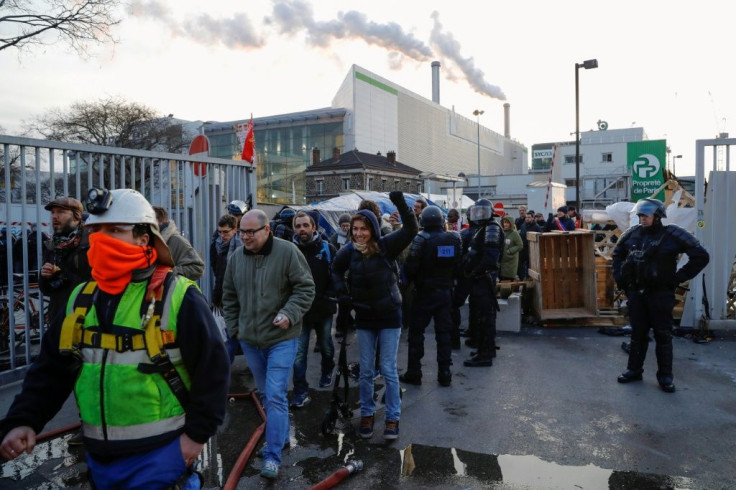Historic French Strike Stunted Growth: Central Bank

France's longest continuous transport strike has shaved up to 0.1 percentage points off fourth-quarter growth in 2019, the central bank said Wednesday as the showdown over pension reforms entered its 42nd day.
The impact has been factored into the overall growth forecast of 0.2 percent for the final quarter, Banque de France governor Francois Villeroy de Galhau told a parliamentary finance committee.
An estimated 10 percent of businesses, mainly in the hotel, restaurant and transport industries have been affected by the stoppage, he said, but declined to comment on the disruptive labour action's potential effect on the economy in 2020.
De Galhau described the economic impact of the strike, which began on December 5, as "limited", but said this did not "diminish in any way the real discomfort suffered by millions of our fellow citizens, employees and merchants."
The effects would vary, he added, between companies, economic sectors, and even geographic regions.
Parisians have borne the brunt of the strike led by train, metro and bus drivers protesting the loss of early retirement privileges under the pension overhaul.
For weeks, the vast majority of Paris metro lines have been closed or virtually unusable, suburban train numbers slashed, and thousands of French people saw their December holiday plans dashed as regional and inter-city trains were cancelled.
Businesses complained of turnover losses of as much as 50 percent as the transport shortage kept clients away, especially damaging over the usually busy Christmas shopping season.
With about one in five train drivers still on strike by Wednesday, according to the SNCF rail agency, public transport in Paris has started to improve, although commuters are still confronted by overflowing buses and train carriages and many continue walking or cycling long distances instead.

The government wants to merge 42 existing pension plans into a single, points-based system it insists will be fairer and more transparent, but which unions claim will cause millions to work longer for smaller retirement payouts.
A sixth day of mass demonstrations against the reform has been called for Thursday, and on Wednesday strikers blocked a nuclear power station in the north of France and a waste treatment centre outside Paris to show they are not yet ready to budge.
Also taking part were workers at several ports, and at Marseille a thousand travellers in a ferry destined for Algiers were unable to depart.
Unions have also called for a further day of protests and strikes on January 24, when the draft law was scheduled to be discussed by the council of ministers.
Over the weekend, the government offered to drop the most contentious element of the overhaul: a "pivot age" of 64 until which people would work to qualify for a full pension -- two years beyond the official retirement age.
On Wednesday, Prime Minister Edouard Philippe described the strike as a "dead end" and said it had gone on for too long.
The Banque de France last week forecast overall growth of 1.3 percent for the French economy for 2019, followed by a lower 1.1 percent in 2020.
An opinion poll Wednesday showed that 47 percent of people still support the strike, compared to 40 percent against it.
© Copyright AFP 2024. All rights reserved.





















